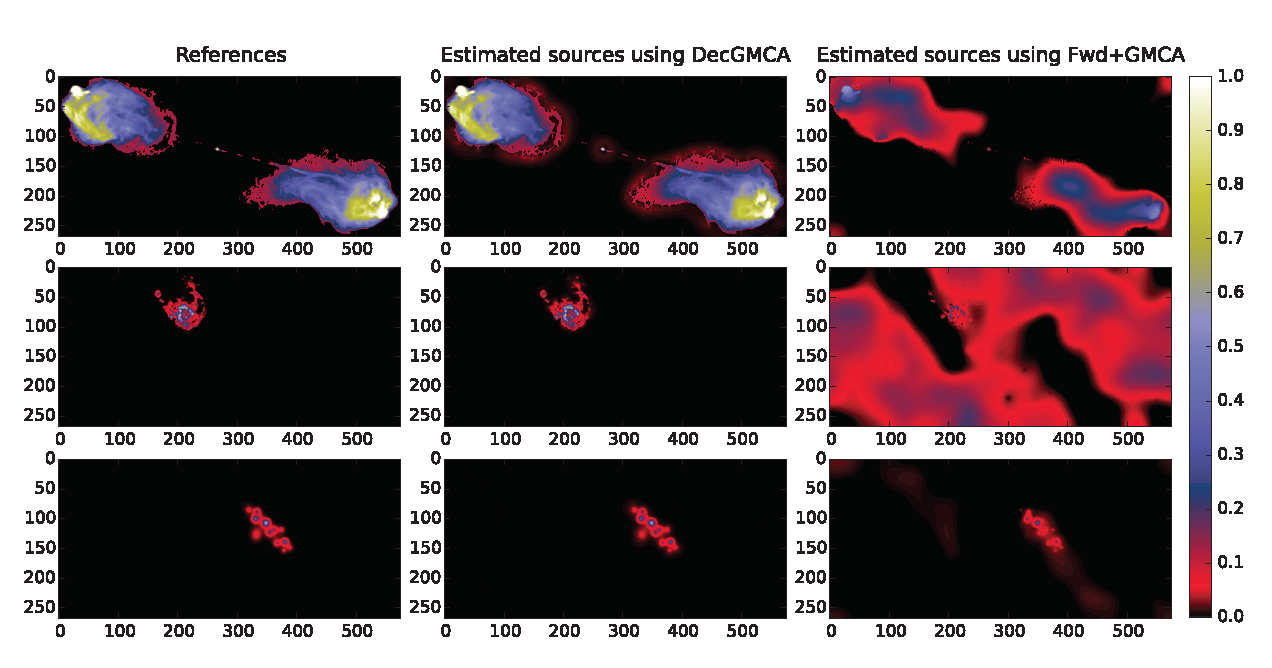Joint Multichannel Deconvolution and Blind Source Separation
Published in SIAM J. Imaging Sci., 2017
Abstract
Blind source separation (BSS) is a challenging matrix factorization problem that plays a central role in multichannel imaging science. In a large number of applications, such as astrophysics, current unmixing methods are limited since real-world mixtures are generally affected by extra instrumental effects like blurring. Therefore, BSS has to be solved jointly with a deconvolution problem, which requires tackling a new inverse problem: deconvolution BSS (DBSS). In this article, we introduce an innovative DBSS approach, called DecGMCA (deconvolved generalized morphological component analysis), based on sparse signal modeling and an efficient alternative projected least-squares algorithm. Numerical results demonstrate that the DecGMCA algorithm performs very well on simulations. It further highlights the importance of jointly solving BSS and deconvolution instead of considering these two problems independently. Furthermore, the performance of the proposed DecGMCA algorithm is demonstrated on simulated radio-interferometric data.
Hightlights

In the context of degraded multichannel imaging, DecGMCA (middle column), jointly solving BSS and deconvolution, showcases a beautiful image and spectrum recovery while sequential deconvolution and BSS (right column) fails, compared to the reference (left column).
